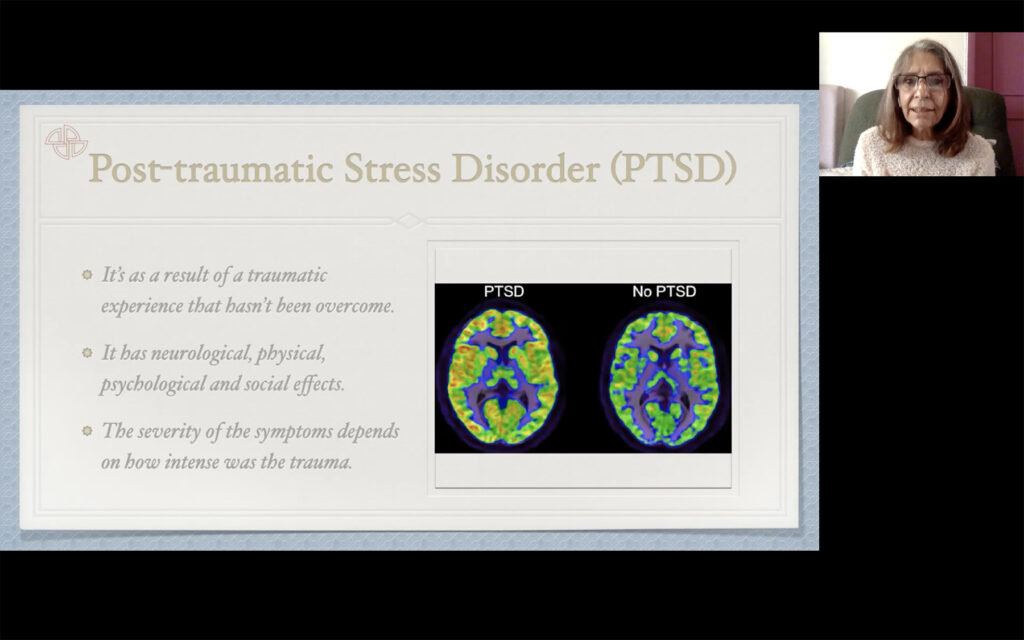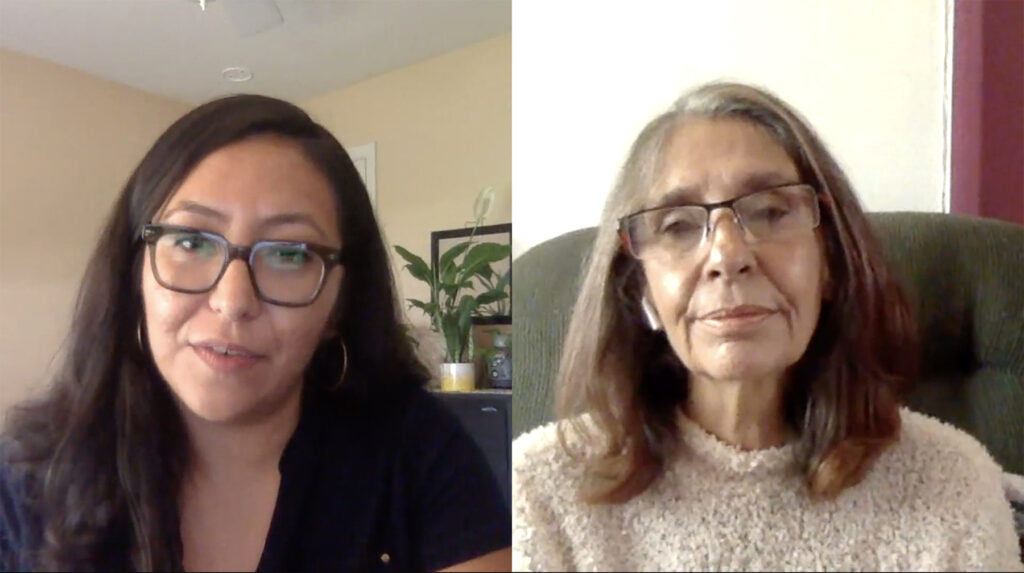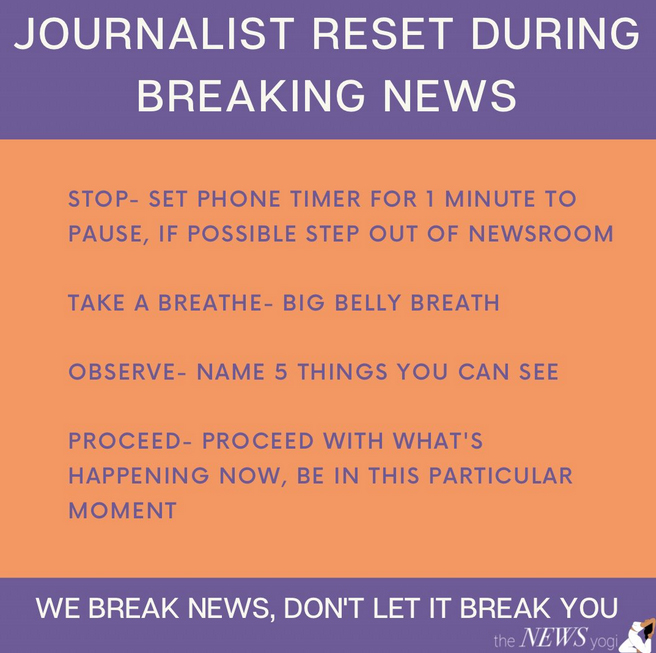Burned-out journalists learn to put self-care first

From the COVID-19 pandemic and nationwide protests against systemic racism to a polarizing presidential election that culminated with a deadly riot at the U.S. Capitol, journalists have spent the last year reporting on disturbing news events — and their sometimes devastating impact on everyday people.
Studies highlighting the effects of covering the pandemic, in particular, found it often led to mental health issues like burnout for journalists. But Bianca Padró Ocasio, a reporter at the Miami Herald and El Nuevo Herald, says sometimes it’s not just the coverage that can push a reporter into crisis, but the industry itself.
“Especially in a white-dominated newsroom, you don’t really get the same level of support that other people might get — and those are other things that weigh on you,” she said in an interview with the Latino Reporter. “There are those who have left the industry…and they talk about how it wasn’t this particular event — it wasn’t a mass shooting, it wasn’t a building collapse — it was the lingering trauma over time of working in an industry that isn’t supportive.”
Padró Ocasio was one of a handful of reporters part of “Walking Alongside Communities Through Tragedy, ” a session at the NAHJ 2021 International Training Conference that explored how traumatic events like the Surfside condo collapse in Miami-Dade County affect the journalists covering them.
The pandemic only exacerbated already existing challenges.
A recent study from the International Center for Journalists looking into its effects on the industry surveyed more than 1,400 news workers from 125 countries and found the vast majority, about 70%, said they experienced negative emotional and psychological effects from their work during the pandemic. Common complaints included anxiety, depression and post-traumatic stress that stemmed, in part, from coping with the crisis, worries they could lose their jobs and dispelling misinformation about the coronavirus.
Women journalists faced even more adversity, according to a similar report from the International Federation of Journalists. It found that COVID-19 resulted in higher stress levels among more than 75% of the 500 women surveyed internationally. Concerns ranged from struggling to juggle work and childcare to feeling bullied by their bosses.
“If we’re already dealing with all these mental health issues, you add in the layer of stressfulness of being a journalist, and add in … and how [we] have been impacted by the pandemic, it does not paint a pretty picture,” said Leslie Rangel, morning news anchor at FOX 7 Austin in Texas.
In addition to reporting, Rangel taught yoga for five years before founding The News Yogi in 2020, a specialized yoga program designed specifically for journalists. Her website describes it as an online wellness studio that uses yoga to help journalists decompress from the stress and trauma of covering the news.

“We have been taught that we should not be taking care of ourselves; we should always take care of others — but that’s not true,” Dr. Ana Zellhuber, psychoanalyst, emergency psychology specialist and founder of Vinland Solutions said during the conference’s Mental Health and Self-Care session. “The only real duty that we have in this existence is to take care of ourselves, and become everything that you can become.”
In order to remain effective on the job, Zellhuber told session attendees to emotionally check in with themselves daily and acknowledge if they feel stressed, apathetic or irritable. From there, she said it’s important they register how they will respond to those emotions.
Solutions can range from confiding in loved ones to journaling. Zellhuber said it’s important people understand that what they’re experiencing is normal and that they’re not alone.
“You have the right to be happy, healthy, powerful, and the right to be at peace,” Zellhuber said. “When you feed yourselves emotionally by sharing with your family and friends, you feed your spirit by helping others and feeling fine with yourself.”
She also emphasized the importance of taking care of yourself physically: eating healthy, exercising regularly, getting enough sleep and taking time off. All of these activities can help create a stable balance between your professional and personal life and can prevent exhaustion during the day.

“When we think of anxiety, [it] is the fear of what’s to come next. When we think about depression, it is what happened in the past,” Rangel said. “Life is happening right now in this present moment, and I think that when we really focus in on what we are doing in this very moment. … I think that helps so much being able to navigate what comes next.”
That effort is multifaceted. Rangel has found the same mental and spiritual approach she takes on the yoga mat also works in the kitchen.
“Yoga is really the practice of finding your own sensations in whatever situation you’re in…in that moment, I zeroed in, took a breath, and anchored myself back to something that brought me comfort,” she said. “That’s what making salsa was for me; [it] was a form of yoga — a form of being able to pause, listen and check in with what I was doing, and being able to reproduce something that brought me back to a place where I felt safe.”

While covering the aftermath of the Surfside condo collapse, Padró Ocasio found comfort in her hobbies, like surfing along the Florida coastline and gardening. She said that’s a feeling she carries into her professional life and allows her to set boundaries at work.
Picking up new hobbies “has really kept me very sane through transitioning out of the pandemic,” she said. “Understanding when I just need a distraction and when I just need to step away and have a clean break from my job.”
She said leaning into her hobbies also gave her the confidence to recognize when mental health issues were arising and advocate for her well-being. As building collapse coverage continued, she asked her editor to move away from asking reporters to speak only with the families of victims, covering more news conferences instead.
“That was what a break signified for me in that moment: I’m still being useful, I want to be helpful. I want to be contributing to this huge story that has just landed on us, but I just cannot do the same duty that I have been doing for the past three days,” she said. “We all have very different limits and finding ways to measure your own success in ways that work for you is a very valuable thing to learn in this career.”
Tips compiled by the International Journalists Network recommend newsrooms better advocate for their employees’ mental health by creating protocols that clearly state the support systems in place, appointing a mental health committee that can recommend their own guidelines and hosting peer support programs. But that doesn’t always happen.
Padró Ocasio said while she’s confident in the approach of her own workplace, underlying problems within the journalism industry negatively impact employees.
“There are a lot of things about the industry that are by themselves traumatizing in some ways,” she said. “Even the way that we face, especially in local news journalism, the threat of buyouts, layoffs, downsizing and other corporate pressures, they really … pile up.”
To combat that, Rangel said it’s vital to practice self-care outside the workplace. Without it, she said persistent burnout among journalists of color will deplete their ranks.
“I absolutely implore that journalists, whether you are manager, reporter, producer, graphic designer – whatever aspect you are…it’s so important to prioritize your mental health,” Rangel said. “We’re humans first and journalists second.”
Olivia Montes is a senior at Washington College, where she has studied communications and media, political science and journalism, editing and publishing. She is a news intern at Delaware State News and hopes to pursue a career in print journalism, though she has recently started a podcast at her school radio station. Reach her on Twitter @MontesLiv.